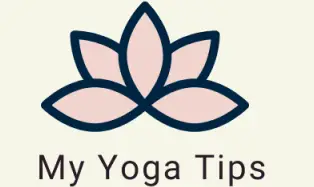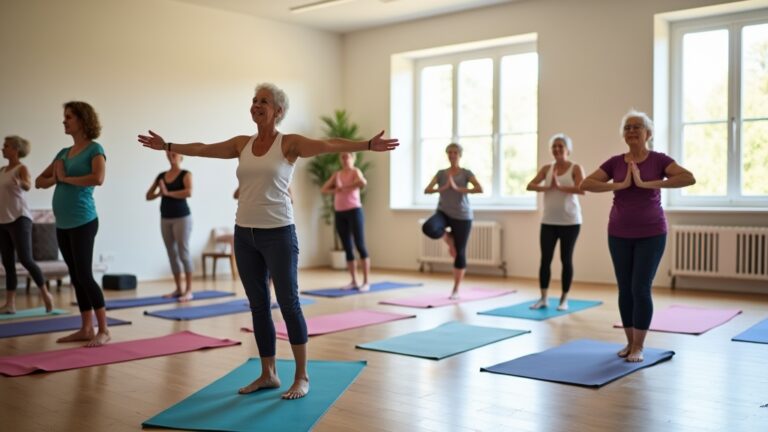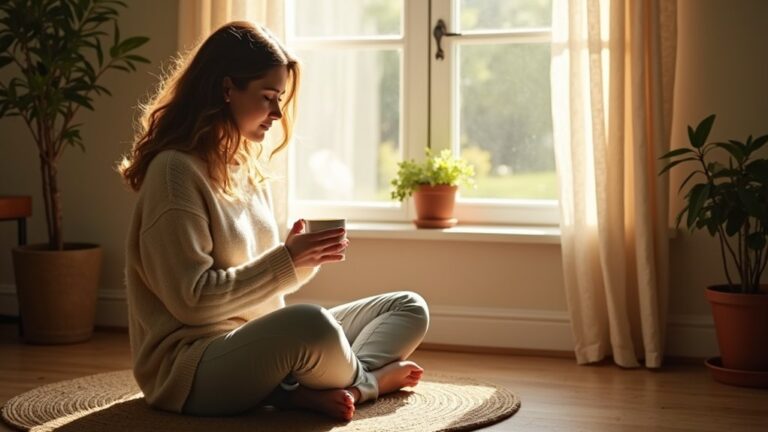The Role of Yoga and Meditation in Emotional Healing

Just as a calm sea reflects the beauty of the sky, yoga and meditation can mirror the tranquility you seek within. By incorporating these practices into your routine, you can foster mindfulness and self-awareness, essential for managing emotions effectively. Regular yoga and meditation can reduce stress and anxiety, improve your mood, and enhance your sleep quality. As you begin this journey, you’ll discover how these techniques can transform your emotional resilience and overall mental well-being, but the full depth of their impact is yet to be explored.
Emotional Regulation Through Yoga and Meditation
When you practice yoga and meditation, you harness powerful tools for enhancing your emotional regulation. These practices increase mindfulness, which is essential for managing emotions effectively. By enhancing cognitive reappraisal and reducing expressive suppression, you can better manage your emotional responses.
Regular practice of yoga and meditation also boosts self-compassion, a key factor in improved emotional regulation. These practices improve attentional flexibility and broaden your awareness, helping you to positively reappraise events.
As a result, you experience reduced negative affect and increased positive affect. Additionally, yoga and meditation influence neurochemical pathways, raising serotonin and GABA levels, which calm the brain and reduce anxiety and depression. This combination leads to better emotional stability and overall well-being, and it also helps in reducing stress hormones such as cortisol.
This combination leads to better emotional stability and overall well-being.
Stress Reduction Techniques in Yoga and Meditation
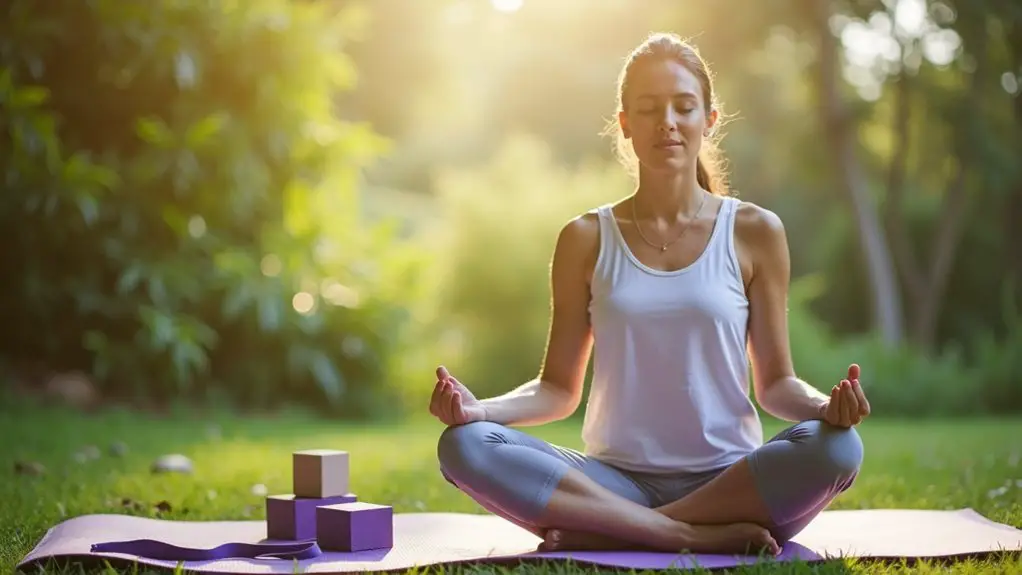
As you master the art of emotional regulation through yoga and meditation, you can also leverage these practices to effectively reduce stress.
Yoga poses, such as the Cat-Cow Pose, connect your breath to movement, calming your mind and releasing stress. These postures promote flexibility, relieve tension, and alleviate pain, while also releasing physical blockages like muscle knots and boosting mood-boosting endorphins.
Breathing techniques like pranayama, including alternate nostril breathing and 4-7-8 breathing, help relax and regulate your breath, enhancing sleep quality and encouraging mindfulness. Regular practice decreases cortisol levels and positively affects parasympathetic nerve activity, promoting relaxation.
Box breathing and humming bee breath are additional tools for relaxation. Regular practice decreases cortisol levels and positively affects parasympathetic nerve activity, promoting relaxation.
Meditation practices, such as yoga nidra and mindfulness meditation, reduce stress levels, enhance well-being, and improve sleep quality.
These techniques strengthen mental resilience and reduce the risk of burnout, making you better equipped to handle stressful situations.
Managing Anxiety With Yoga and Meditation
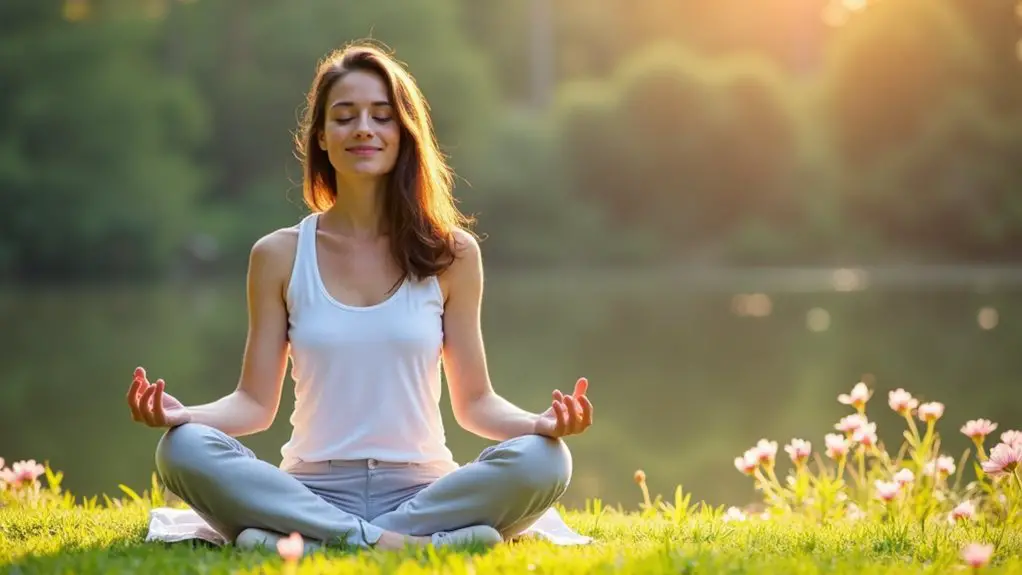
Managing anxiety through yoga and meditation involves leveraging these practices to target the root causes of anxiety and promote lasting relief.
Yoga has been shown to be considerably more effective for generalized anxiety disorder than standard stress management education, though less effective than cognitive behavioral therapy (CBT). In studies, 54% of participants practicing yoga met response criteria for improved anxiety symptoms, compared to 33% in the stress education group.
Both yoga and meditation reduce anxiety by stimulating the parasympathetic nervous system, promoting rest and relaxation. This is particularly evident in Kundalini yoga, which includes physical postures, breathing techniques, and mindfulness practices.
Meditation, in particular, lowers cortisol levels, a key indicator of stress, and helps control anxious thoughts and improve focus and concentration.
While yoga may not offer long-term benefits as robust as CBT, combining it with other therapies can enhance its effectiveness.
Regular practice of these techniques can improve brain function and help you develop better coping mechanisms for anxiety.
Yoga and Meditation for Depression Relief
Yoga and meditation have proven to be valuable tools not only for managing anxiety but also for providing considerable relief from depression.
Regular yoga practice has been shown to notably reduce depressive symptoms. Studies indicate that the more you attend yoga classes, the lower your depressive symptoms are likely to be at the end of the program.
Yoga helps regulate the body’s stress response, enhances neuroplasticity, and increases levels of GABA and serotonin, all of which contribute to improved mood and reduced anxiety.
High-dose yoga, involving three 90-minute sessions plus home practice, has been found to lead to greater improvements and higher remission rates compared to lower doses. This approach is particularly beneficial for treatment-resistant depression.
The benefits of yoga can persist over time, with some studies showing reduced depression, anxiety, and stress levels even four months after the treatment.
Incorporating yoga into your routine can lead to lasting improvements in your mental health.
Improving Sleep Quality With Yoga and Meditation
Improving sleep quality is a considerable benefit that both yoga and meditation can offer, particularly in a world where sleep disturbances are increasingly common. Over 55% of yoga practitioners report improved sleep, and this benefit extends across all age ranges, from children to the elderly.
Yoga helps by increasing mindfulness, which raises melatonin levels and reduces nighttime disturbances. Deep breathing techniques and regular exercise also contribute to better sleep hygiene. For bedtime, opt for gentle styles like Hatha or Nidra yoga, as they promote relaxation and calmness.
Meditation complements yoga by regulating your nervous system and reducing stress and anxiety, common sleep disruptors. It helps you focus on the present, decreasing mind busyness and arousal. Regular meditation lowers cortisol levels, promoting relaxation and improving both sleep quality and quantity. Additionally, consistent and long-term yoga practice is essential, as it yields superior benefits compared to occasional practice regular practice.
By incorporating yoga and meditation into your routine, you can considerably enhance your sleep and overall well-being.
The Impact of Yoga and Meditation on Overall Mental Health
As you navigate the complexities of modern life, it’s essential to recognize the profound impact that yoga and meditation can have on your overall mental health.
These practices lower stress levels by stimulating the parasympathetic nervous system, reducing cortisol levels, and decreasing the fight-or-flight response. Yoga increases GABA levels, a neurotransmitter that calms the brain, reducing anxiety and depression.
Yoga and meditation enhance emotional regulation by promoting self-awareness and self-understanding, helping you deal with feelings more effectively. They increase serotonin levels, the natural mood-enhancing chemical in the brain, and improve mood by influencing brain areas involved in the default mode network.
These practices also promote emotional balance by regulating the body’s stress response and improving vagal tone, reducing mood disturbances and inflammation. Additionally, they can improve sleep quality, as regular practice has been shown to increase both the quality and quantity of sleep.
They’re effective adjunct therapies to conventional mental health treatments, improving overall mental health outcomes and reducing symptoms of depression, anxiety, and stress.
Enhancing Cognitive Function and Emotional Well-being
Having recognized the significant impact of yoga and meditation on overall mental health, it’s clear that these practices extend their benefits to enhancing cognitive function and emotional well-being.
Practicing 25 minutes of Hatha yoga or mindfulness meditation daily can boost your brain’s executive functions, linked to goal-directed behavior and controlling emotional responses. These practices improve your ability to focus on chosen tasks by reducing nonessential information processing. This enhancement includes planning, monitoring thoughts and behaviors, and controlling habitual patterns.
Yoga and meditation also improve cognitive flexibility and attention, increasing cerebral perfusion in key brain areas and protecting gray matter thickness.
These practices enhance memory and neuroplasticity, helping you adapt and form new connections. Additionally, they promote emotional regulation by reducing stress, cortisol levels, and negative thinking patterns, leading to better emotional balance and overall well-being.
Regular practice can make you more focused, attentive, and emotionally resilient. Moreover, Hatha yoga has been found to have significantly greater benefits on energy levels compared to mindfulness meditation alone.
Regular practice can make you more focused, attentive, and emotionally resilient.
Tailored Practices for Specific Mental Health Conditions
When managing specific mental health conditions, incorporating tailored yoga and meditation practices can be highly effective.
For anxiety and Generalized Anxiety Disorder, yoga reduces symptoms by promoting relaxation and lowering cortisol levels. Meditation helps manage anxious thoughts, reducing their daily impact. Breathing techniques and gentle yoga poses calm the mind and body, leading to significant reductions in worry, tension, and nervousness.
In cases of depression, yoga and meditation reduce symptoms like sadness, hopelessness, and fatigue by increasing serotonin levels and enhancing self-awareness. These practices improve mood and overall well-being through better emotional regulation. Additionally, they provide patients with additional tools to manage their symptoms effectively.
For Post-Traumatic Stress Disorder (PTSD), yoga and meditation manage symptoms such as intrusive thoughts and hyperarousal by fostering calm and relaxation. Tailored exercises like gentle yoga and controlled breathing are particularly beneficial.
While there’s less specific evidence for Obsessive-Compulsive Disorder (OCD) and eating disorders, these practices still promote relaxation, reduce stress, and improve self-awareness, making them valuable complementary treatments.
